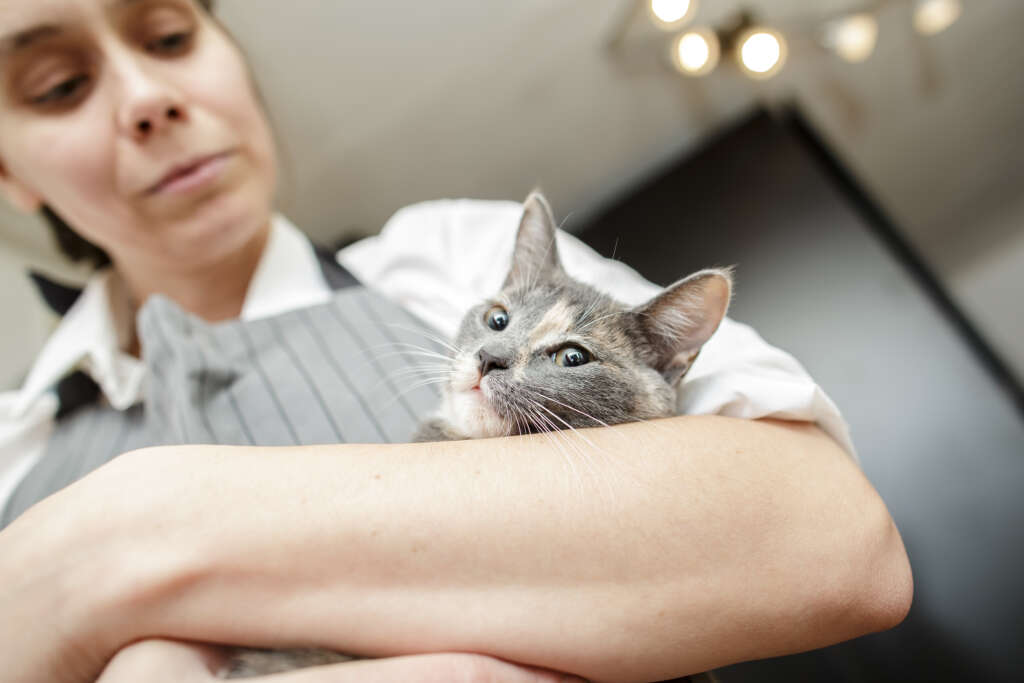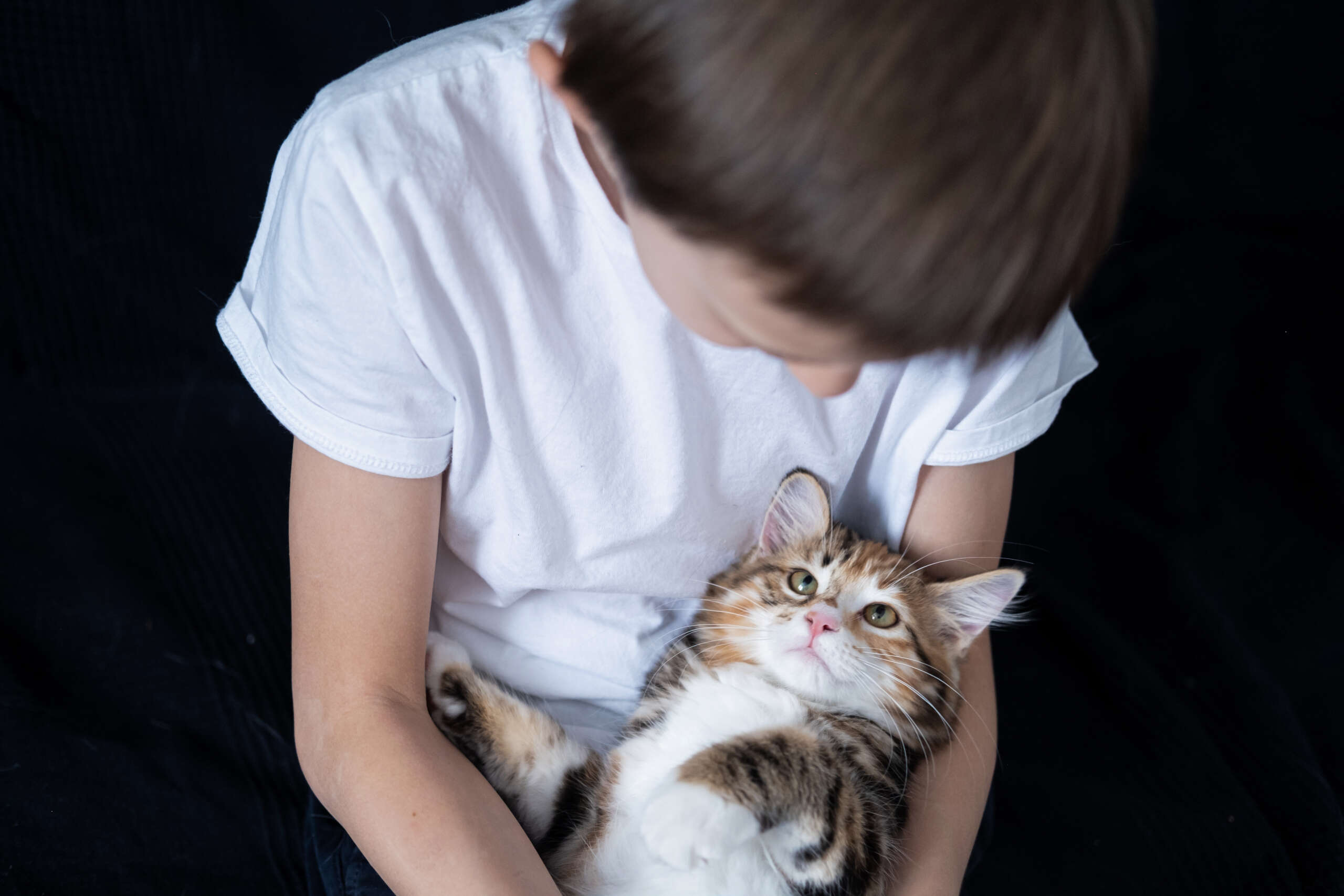Share This Article
Studies show that a cat’s purr can help fight anxiety. But how do cats for anxiety relief work their magic? And what do the numbers say about our bond with them?
Getting a cat can soothe both heart and nerves. It’s linked to stress-relieving hormones. With over 45 million U.S. homes having a cat, could they help with mental health?
Cats are known for their healing purrs. These purrs have health benefits, like lowering blood pressure. They even help in therapy settings, showing their value.
But, not all stories are happy. Some studies in Japan suggest cat ownership might harm mental health. This makes us question their role in our lives.
Looking into real-life cat therapy, we find many touching stories. These stories show how cats positively impact our lives. They offer more than just company, as seen in Boise’s Simply Cats.
The Therapeutic Science of Cat Companionship
Studies show that owning a cat can help with mental health. Licensed therapists Cassandra Fallon and Dr. Jamie Whittenburg explain how cats make our lives better. Cat owners spend over $1,000 a year on their pets, showing how much they value them.
Research shows cats have many benefits. For example, they can lower blood pressure and heart attack risks. The calming purr of cats and the joy of caring for them is key to these benefits.
Many people share stories of how cats help them emotionally. Cats provide comfort and companionship, helping to fight loneliness and depression. This improves their overall quality of life.
“Interacting with cats can lead to significant reductions in stress and anxiety levels,” confirms Dr. Whittenburg. This is backed by personal stories and scientific data, highlighting cats’ role in health.
Cat owners often get sick less, thanks to their pets. Caring for a cat encourages physical activity and mindfulness. This helps us become more caring and empathetic.
The bond with cats is more than just companionship. It’s a therapeutic relationship that benefits our body, mind, and soul. This shows how cats can help us feel less anxious and improve our lives.
Personal Stories of Cat Therapy in Action
Cats have a big impact on anxiety and pet ownership. This is seen in cat owners’ stories and scientific studies. They create a healing space for both cats and owners.
Petting a cat can release endorphins and lower stress. This helps those with anxiety.
Cats bring routine and comfort to lives affected by mental health. Caring for a pet helps manage anxiety. It creates a structured daily routine.
Cat owners say their pets sense mood changes. They provide comfort by sitting with them. This makes the environment calmer for those with anxiety.
“Discovering moments of peace in the calm purring of my cat has transformed my approach to daily stress,” shared a participant from a recent study analyzing the impact of emotional support animals on mental health.
Studies show cats can reduce depression and anxiety symptoms. Their presence is soothing. It’s a form of sensory therapy.

Choosing the right cat is key for therapy. Cats should enjoy human interaction and not get stressed in social settings. This ensures the well-being of both the pet and the owner.
Many cat owners’ stories show how caring for a cat can help the owner’s mental health. It’s a journey of healing and growth. Treating pets as sentient beings is crucial.
The stories of cat owners’ stories show the therapeutic value of cats. They highlight the importance of cats in mental health support.
Cats Help with Anxiety: The Healing Power of Purring
The sound of a cat’s purr is more than soothing; it’s healing. It’s known for its health benefits, especially for mental wellness. The purr’s frequency, between 25 and 150 Hz, helps heal tissues and bones.
Studies show that cats can greatly improve mental health. Their purring can lower stress and anxiety in owners. In today’s busy world, this is very helpful.
Listening to a cat’s purr can also lower blood pressure. It can even reduce the risk of heart attacks. Plus, it helps you sleep better.
Cat ownership is associated with a reduced risk of heart attacks and strokes by as much as a third—an impressive statistic underscoring the profound impact these pets have on human health.
A cat’s purr does more than calm you; it has physical benefits too. It helps bones grow and repair. This is why cats often have fewer bone problems than dogs.
Vibrational therapy, which mimics cat purrs, helps other animals and humans recover faster. This shows the purr’s healing power.

Cats also benefit from purring. It keeps their muscles strong and bones dense during rest. This is why purring is so important for them, especially after surgery or injuries.
Purring acts like ‘cat exercise,’ preventing muscle loss. It also keeps their bones strong.
Some doctors are unsure about purring’s effects because of limited studies. Yet, cat owners often say they feel better when they hear a cat purr. This evidence, along with some science, shows cats are more than just pets. They are healers.
Emotional Support from Furry Friends: More Than Just Pets
Pets, especially cats, have a big impact on our well-being. They bring joy and offer emotional comfort to cats. Their presence helps in real-life cat therapy, improving our mental and emotional health.
In the U.S., about 68% of homes have pets. This shows how important animals are in our lives. Studies by the NIH and the Mars Corporation’s WALTHAM Centre show the benefits of being with animals. Being around cats can lower stress hormones, making us feel calmer.

Cats do more than just keep us company. A study by Liverpool University found that pets, including cats, boost our mental health. They give us constant companionship and love, helping us feel better emotionally and mentally.
Petting a cat can foster immediate tranquility, which is why many consider cats as natural therapeutic aides in settings that require real-life cat therapy.
We should see pets, especially cats, as more than just animals. They are our companions, helping us emotionally and mentally. They have a lasting impact on our lives, giving us emotional comfort from cats when we need it most.
From Solitude to Social Comfort: Cats Combat Feelings of Loneliness
In today’s world, cats are a big help against feeling alone. With over 70% of American homes having pets, it’s clear that animals and humans are closely connected. Cats help by being more than just pets; they create a deep emotional bond that fills the gap left by a lack of social interaction.
A study looked at 24 studies and found that pets, especially cats, improve mental health. This shows that cats and other pets can help people feel less isolated. They make us feel better and more connected.
Many American homes have at least one cat, which boosts mental health. These pets offer constant love and energy. For older people, especially those living alone or who have lost a loved one, cats are a big help. They make life feel more meaningful and structured.
Studies from 2018 and 2019 show that having a cat can lower frailty and anxiety. It makes people more active and happy. This shows how important pets are for our mental health.
Since the pandemic, loneliness has been a big issue. But cats have been a steady source of comfort for many. They help us feel better, even when we’re alone. Their unique nature and independence offer a special kind of comfort.
Cats do more than just comfort us emotionally. They encourage us to be resilient and to laugh. They even help our bodies by reducing stress and lowering blood pressure. Pets, especially cats, are a key part of our mental health.


